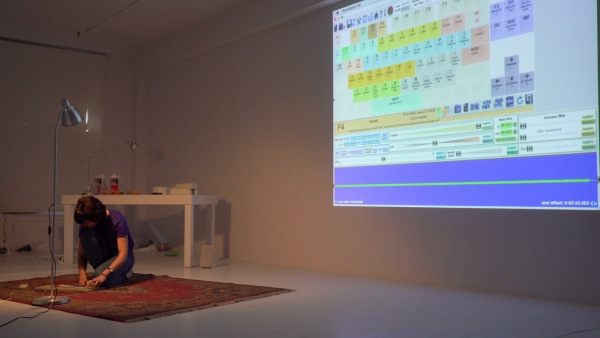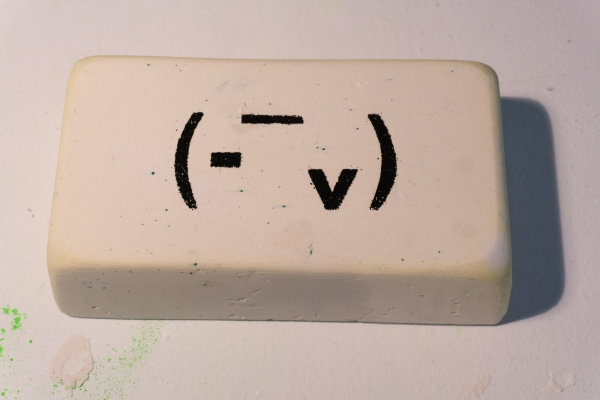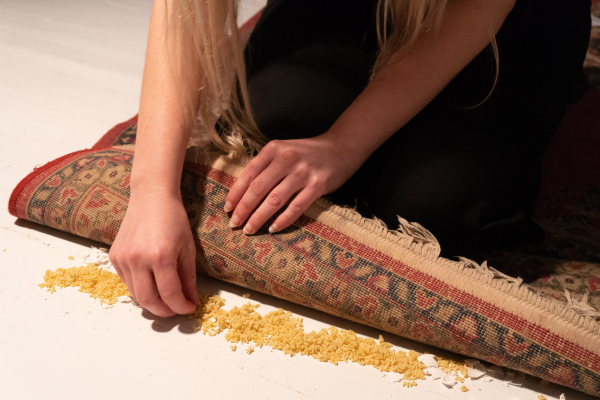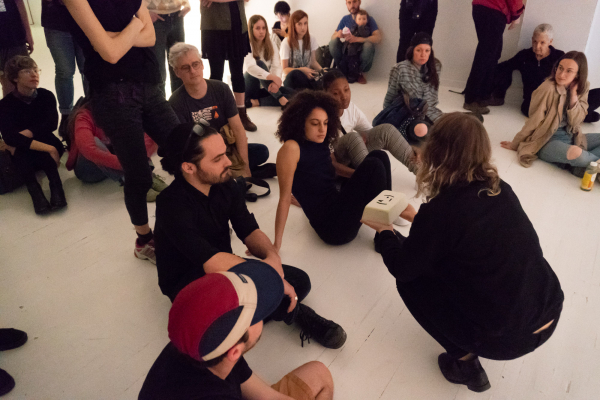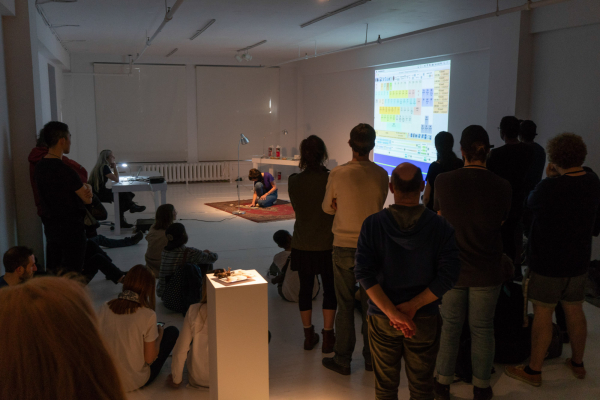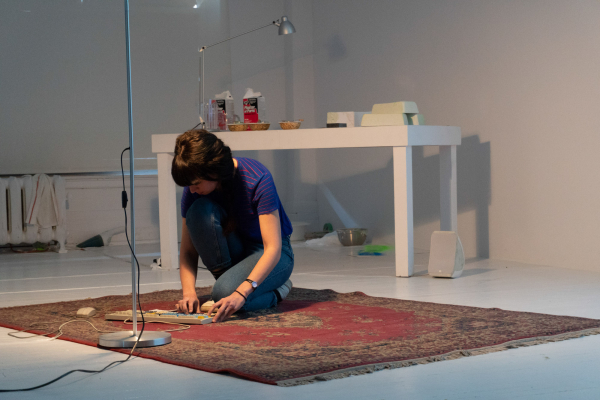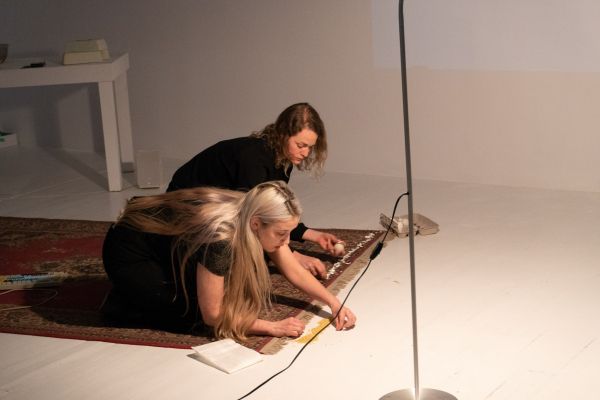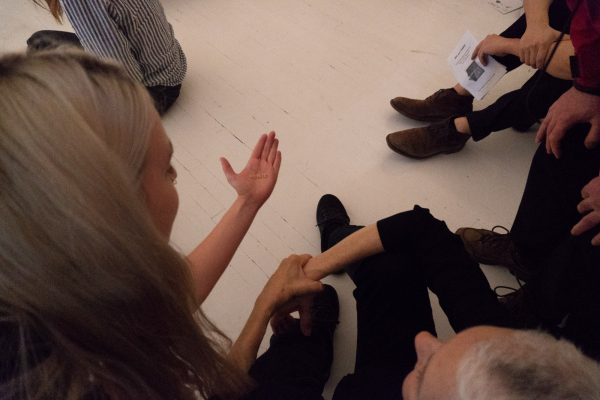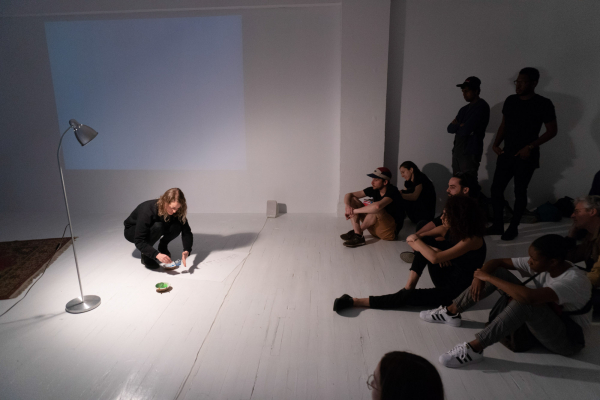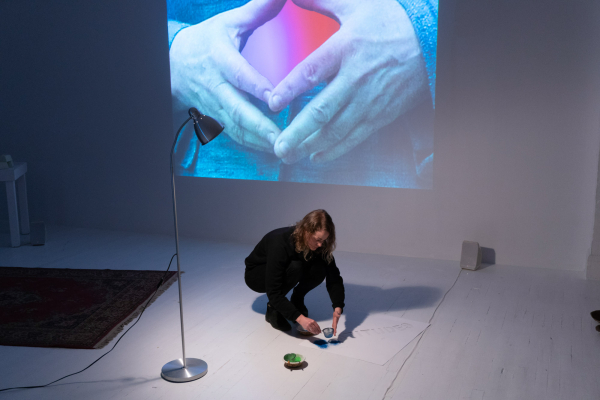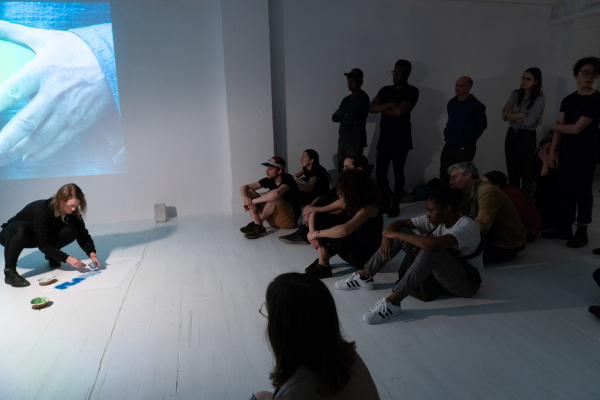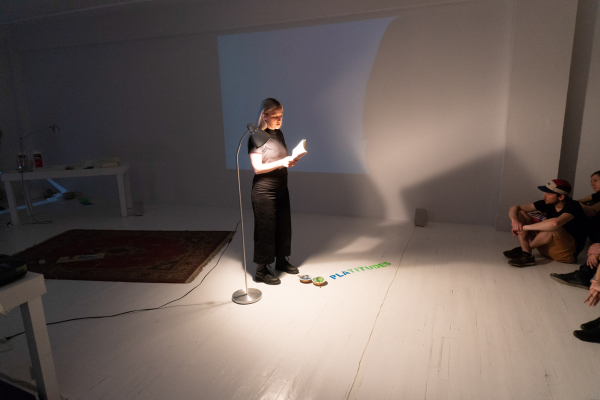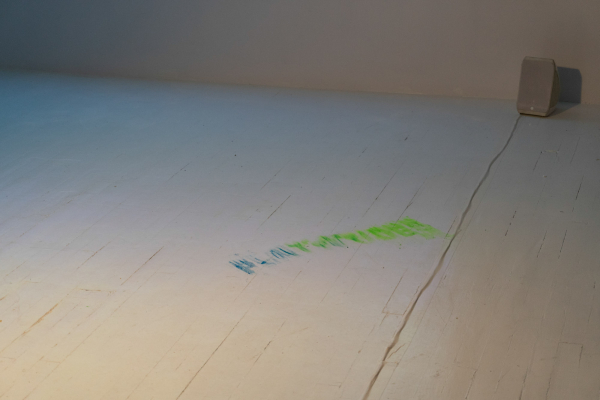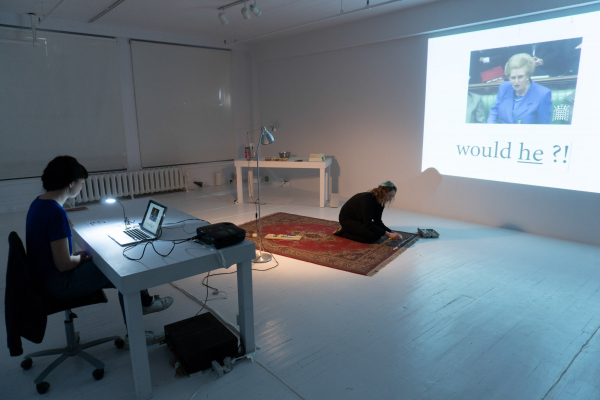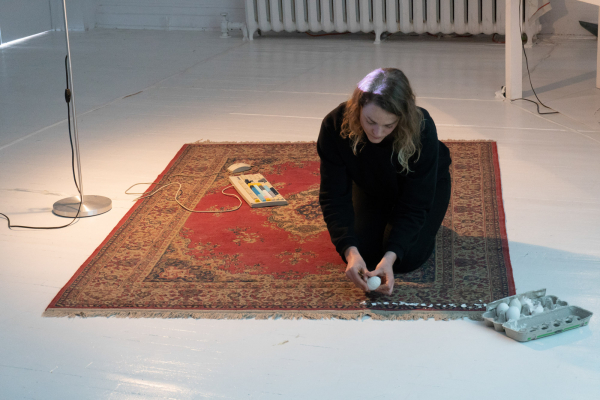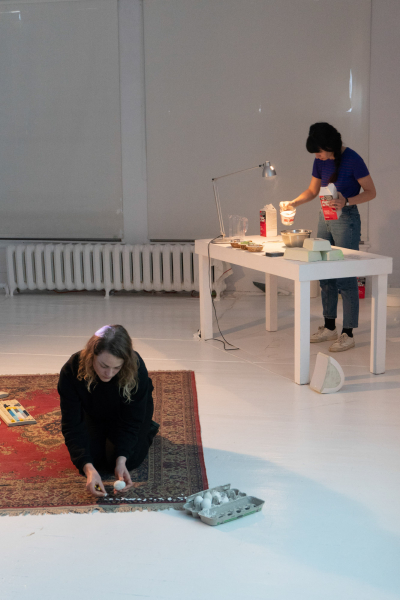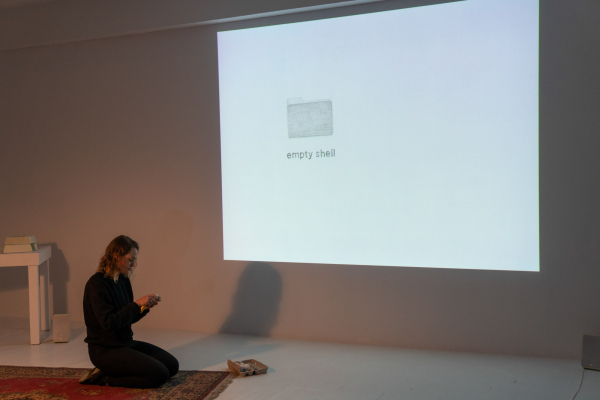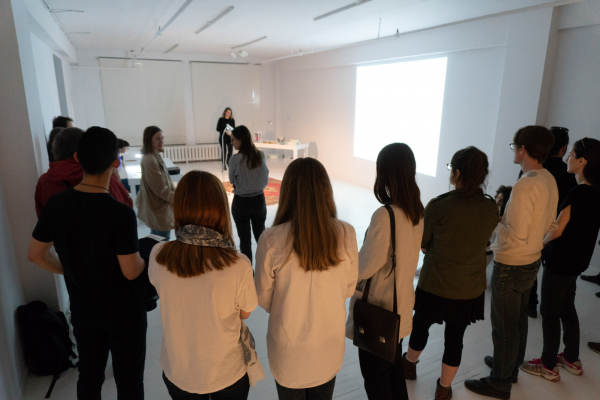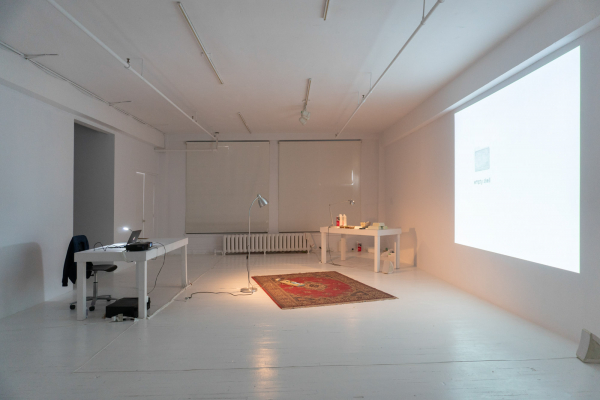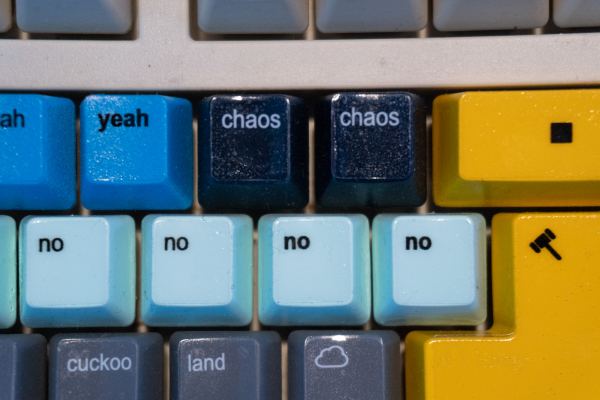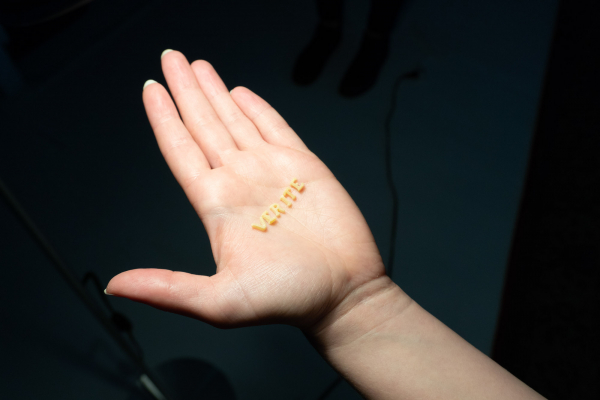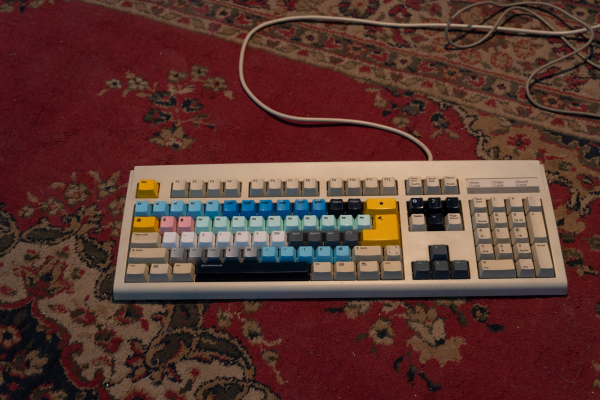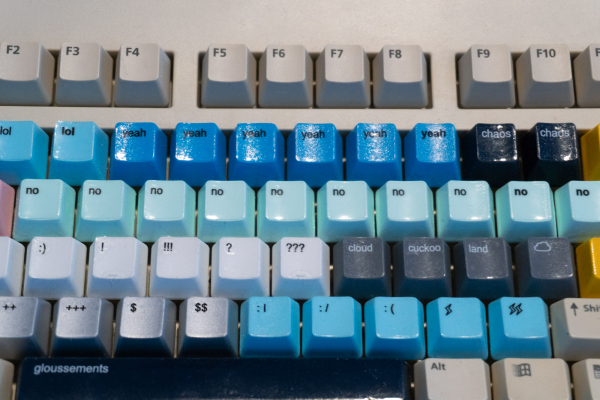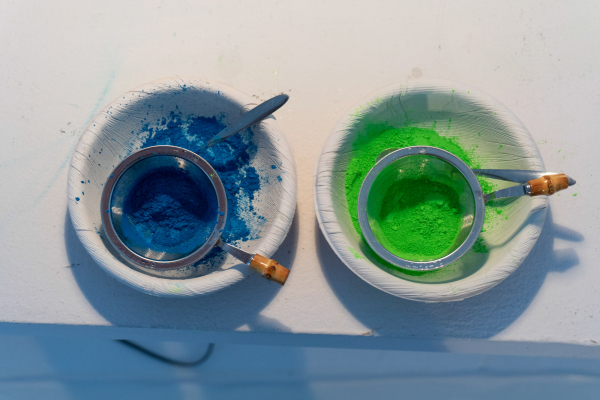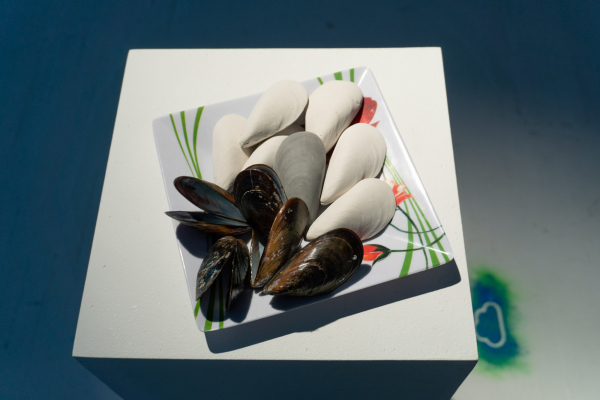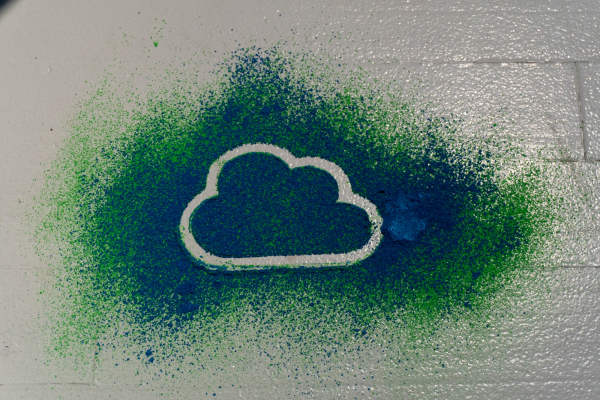(Empty) shells
- Marie-Andrée Pellerin
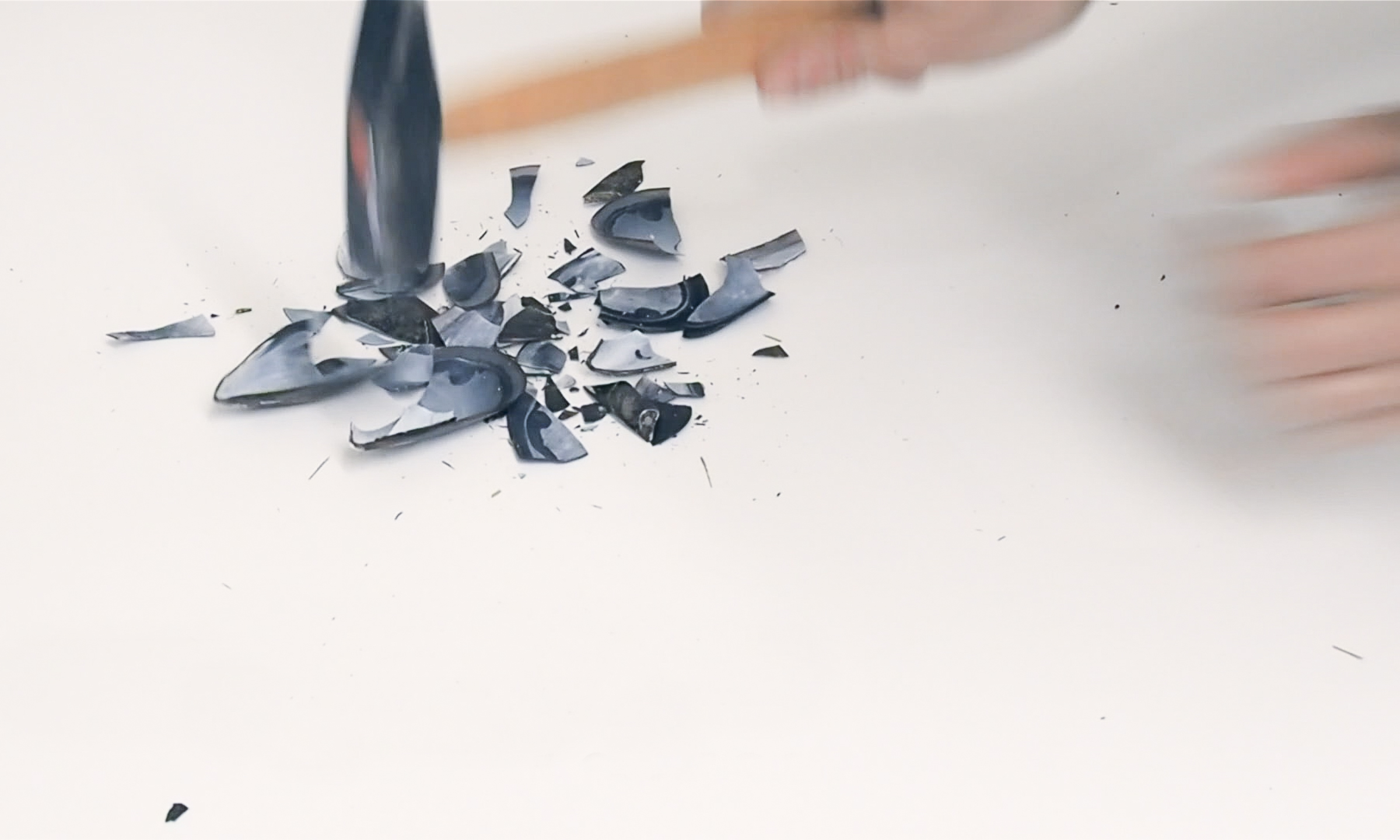
The (Empty) shells performance is part of a long-term project that artist Marie-Andrée Pellerin is developing on the art of persuading (rhetoric) and the power of words. The artist pays more attention to the performativity and materiality of the (containing) language, rather than to the rational meaning of the words and to the argumentation (content).
Through a combination of performative actions and various audio-visual fragments, the reading-performance (Empty) shells will try to make visible certain rhetorical techniques and forms of power that language embodies by its very nature. The performance revolves around a 1990 Margaret Thatcher speech that has been manipulated, deconstructed and restructured for the occasion.
Plasticité d’un rhétorique performative
Originally from Montreal, where she studied architecture, before pursuing visual arts at the Dutch Art Institute, Marie-Andrée Pellerin carries out research, both material and conceptual that, in her most recent developments, addresses the question of language from the perspective of deconstruction. (…)
It is at first the authoritarian style of the former Prime Minister [Margaret Thatcher] that surfaces, and very quickly, we understand that the theme explored here is that of power relations and domination in spoken language. Negative, positive, assertive, exploitive… the language is here presented as powerful and as vulnerable, and also in relation to the body (nonverbal language). The force of the enunciation, in the light of the situation, reminds us how the act of expressing something can also be a performance. Performing is the carrying out of a linguistic sign (statement, sentence, verb, etc.) of being performative, that is to say of producing what it states. To pronounce one of these signs then makes it become a reality. The performative is thus the linguistic facade of something deeper: the construction of social realities.
The editing sets the tone: punctuated with graphic elements or words to reinforce the material stated, chopped, sampled and sampled, arranged in the manner of a demonstration, suggesting that through this filmic object, something is played out. It is less a matter of restoring the discourse than of deconstructing its form: of making some of the elements stand out, both sound and visual, in order to reveal its substance. The device also presents the dysfunction of language and the impossibility of communication, when it gets closer to noise. Interference, chatter, hubbub, disorder … The environment is adorned with another dimension when the sound, suddenly, takes over and envelops us, overwhelms us.
With this environment, Marie-Andrée Pellerin delivers a trans-medial experiment, which, while betraying an interest in spatiality (even architecture), is at the meeting point of video, installation and sound art. Its reading levels are multiple (linguistic, political, feminist, formalist and referential dimensions – Broodthaers’Jardin d’Hiver),but it is the rhetoric that is the primary subject of investigation.
Excerpt from a text by Sébastien Biset, Ph.D. Art History, Brussels
* The text Plasticité d’un rhétorique performativeis to be published by BPS22 – Art Museum of the province of Hainaut, Charleroi (BE).
Artist Biography
Marie-Andrée Pellerinwas born in Montreal and in 2015, she completed a Master of Arts at the Dutch Art Institute in The Netherlands. She works in both Montreal and Linz, Austria. She has exhibited her work at the Van Abbemuseum in Eindhoven (NL), at ADM Centro in Mexico, in Kunstforum in Vienna and at Atelier Circulaire in Montreal, amongst others. Recently artistic residencies have become important to her art practice and she has had residencies at Centre for Contemporary Art à Glasgow (CCA), at BPS22 Musée d’art de la province du Hainaut in Belgium, at Atelierhaus Salzamt in Austria and in Seoul Art Space Geumcheon in South Korea.
Through her artwork in video installations, sculpture and performance, she has become interested in spoken language, the power of words, and the relations of force and influence that they convey. She currently is developing a “meta-language” through which she presents rhetorical techniques that might otherwise go unnoticed. With her ongoing project “Cloud Coucou Land,” she attempts to show the elusive and discriminatory tendencies of language, considering it to be like an instrument dominated by patriarchal discourse. In addition, she uses various forms found in nature (ex: the volcano), in order to represent societal tendencies and their contradictions. She is interested in gestures and phenomena – artistic or not – that also have the potential to be simultaneously constructive and destructive.
Author Biography
Sébastien Biset has a doctorate in art history and is musician. Lecturer at École Supérieure des Arts Saint-Luc in Brussels (History and Contemporary Art) and professor of Comparative History of the Arts at ESA Arts de Mons, he defends a transverse, trans-historical and systemic approach to art, at the intersection of aesthetics, belief and science. His research is focused on the aesthetics of the situation and the “relational paradigm” to which he devoted his doctoral thesis.
He is a co-founding member of the association (SIC), an editorial and curatorial platform established in Brussels and one of the protagonists of the MNÓAD platform, based and active in Le Roeulx and Charleroi. He coordinated Archipel, a project designed by the Médiathèque of the Wallonia-Brussels Federation (now PointCulture). He currently is working with PointCulture as a writer and member of the educational department.

